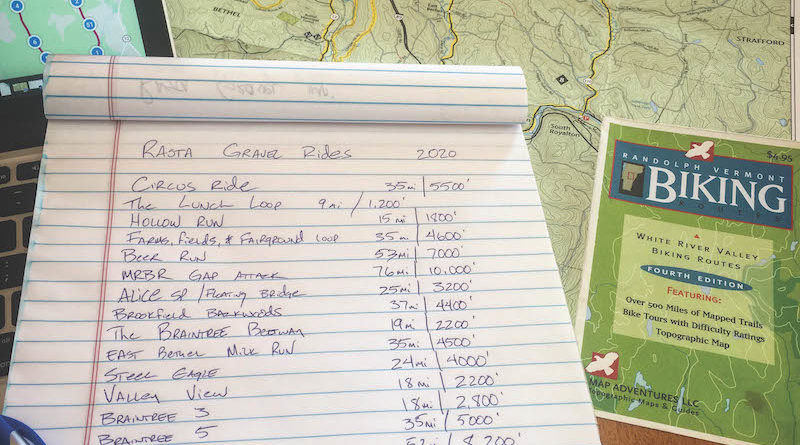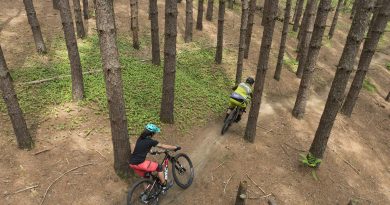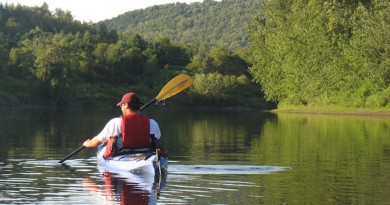Spread the Love
Spread the love.
By the time you read this, two things may have happened to the poster child for Vermont’s mountain bike trail systems. The good news is that the Kingdom Trail Association may be a step closer to purchasing 240 acres atop Darling Hill, a property formerly owned by Ariel Quiros and currently under receivership.
Yes, from Quiros—the guy who bought Jay Peak and Burke Mountain Resort, defrauded foreign investors in what amounted to an EB-5 Ponzi scheme and was forced to turn over many of his assets. The land currently has trails crossing it and KTA hopes to simply maintain and protect it. The organization issued a statement nixing any talk of building a welcome center on the property.
But before you spend too long reveling in this apparent dose of poetic justice, consider this: Kingdom Trails may also now be subject to an Act 250 review.
For reasons that are a little hard to understand, on January 23, David Packie, an avid mountain biker and trail builder who lives in Northfield, requested a review of Kingdom Trails by the Natural Resources Board to determine if Act 250, which covers development regulations, should apply. As reported by the local publication North Star Monthly, Packie’s email stated: “I see industrial level [mountain biking] as clearly impacting that community and many others in profound ways.”
An Act 250 review recently closed trails at nearby Victory Hill Sector, fueling an effort now underway by many trail groups to clarify at the state level how Act 250 and trail building intersect.
Unlike the Victory Hill Sector trails, Kingdom Trails has been part of the Vermont Trails System. It has also closely adhered to trail building and environmental regulations.
Earlier in the season, three landowners withdrew their properties from Kingdom Trails mountain bike network. Kingdom Trails has responded by setting up trail ambassadors and looking to better educate trail users on proper trail use and etiquette. Also, in conjunction with the New England Mountain Biking Association, it decided not to host NEMBAFest. In past years, the event that has drawn as many as 4,000 to East Burke and has had a big economic impact on the region.
This comes at a time when around the state—from Slate Valley to Rochester, Lamoille County to Bennington—other trail groups are building out trails, hosting gravel rides and creating festivals in hopes of attracting folks to some of most rural parts of Vermont, areas where businesses and population are declining.
Randolph, which we write about in this issue, is one of those towns. Ironically, back in the 1990s it was the site of the Northeast’s first mountain bike festival, drawing 2,500 riders to the area to camp, ride and revel.
Could that happen here again? As Zac Freeman, co-founder of the Rochester/Randolph Sports Trails Alliance, says “I’m cautious. I’ve dealt with landowner issues and now I’m focused on building this out for long-term sustainability.”
In the end, the success of these trail systems and their viability comes down to one thing: how we use them.
If we want nice things, we need to take care of them.
We need to join, support, and work with the organizations that maintain them, rather than attack and tear them down. We need to volunteer at trail days. We need to respect trail regulations and the private landowners who graciously allow access.
And we need to avoid overcrowding. There are now more than 28 chapters of the Vermont Mountain Biking Association building trails around the state. How many of those chapter trails have you ridden?
This coming season get out and explore. Respect the land. And spread the love.
Featured Photo: Around the state, new trail maps are being drawn. This season, get out and explore. Photo Zac Freeman




